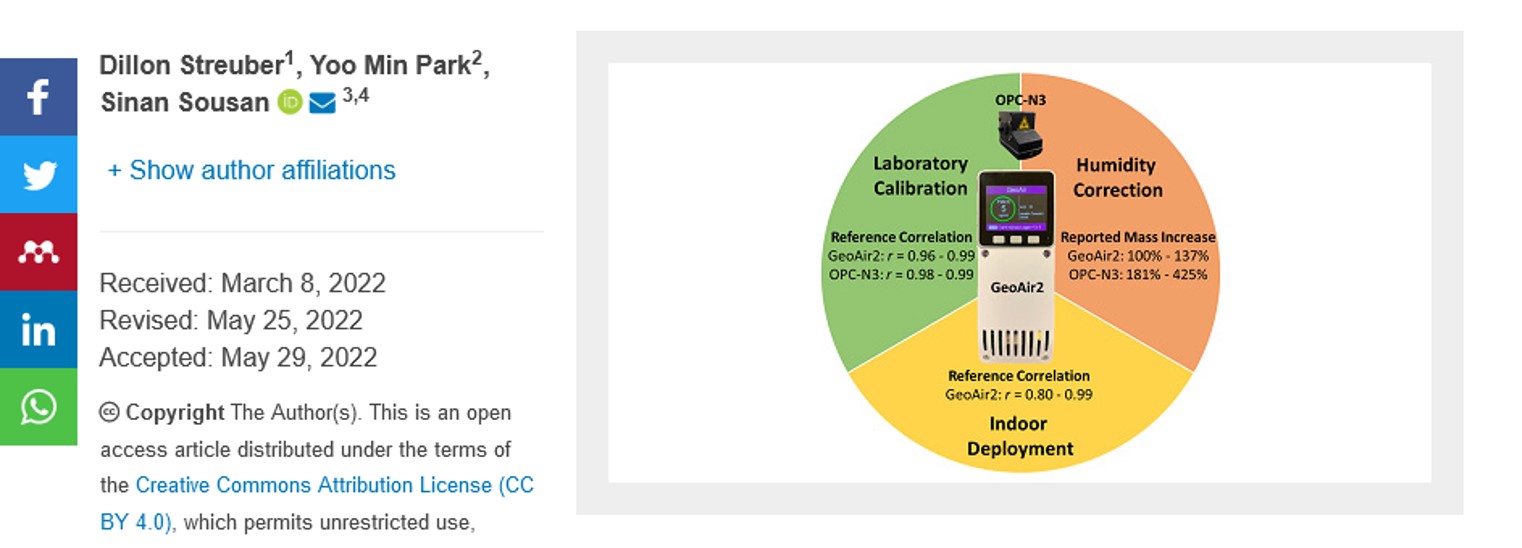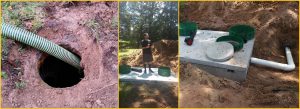Streuber D*, Park YM and Sousan S (2022). Laboratory and Field Evaluations of the GeoAir2 Air Quality Monitor for Use in Indoor Environments. Aerosol and Air Quality Research (e-pub ahead of print). doi:10.4209/aaqr.220119
Abstract
Low-cost aerosol sensors open routes to exposure assessment and air monitoring in various indoor and outdoor environments. This study evaluated the accuracy of GeoAir2––a recently developed low-cost particulate matter (PM) monitor––using two types of aerosols (salt and dust), and the effect of changes in relative humidity on its measurements in laboratory settings. For the accuracy experiments, 32 units of GeoAir2 were used, and for the humidity experiments, 3 units of GeoAir2 were used, alongside the OPC-N3 low-cost sensor and MiniWRAS reference instrument. The normal distribution of slopes between the salt and dust aerosols was compared for the accuracy experiments. In addition, the performance of GeoAir2 in indoor environments was evaluated compared to the pDR-1500 reference instrument by collocating GeoAir2 and pDR-1500 at three different homes for five days. For salt and dust aerosols smaller than 2.5 μm (PM2.5 ), both GeoAir2 (r = 0.96–0.99) and OPC-N3 (r = 0.98–0.99) were highly correlated with the MiniWRAS reference instrument. However, GeoAir2 was less influenced by changes in humidity than OPC-N3. While GeoAir2 reported an increase in mass concentrations ranging from 100% to 137% for low and high concentrations, an increase between 181% and 425% was observed for OPC-N3. The normal distribution of the slopes for the salt aerosols was narrower than dust aerosol, which shows closer slope similarities for salt aerosols. This study also found that GeoAir2 was highly correlated with the pDR-1500 reference instrument in indoor environments (r = 0.80–0.99). These results demonstrate potential for GeoAir2 for indoor air monitoring and exposure assessments.
*Dillon Streuber is a graduate of the ECU MS Environmental Health program. This article is based on his master’s thesis, in which Dr. Sinan Sousan (ECU Department of Public Health faculty) served as his thesis adviser.




